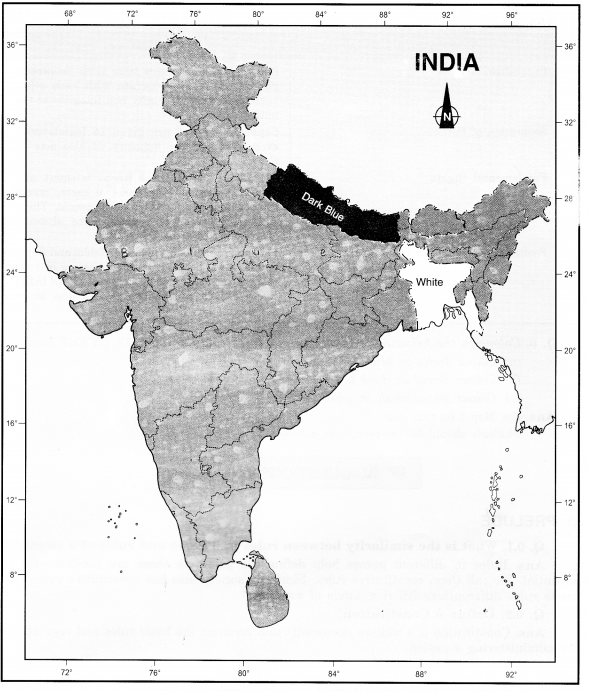NCERT Solutions for Class 8 Social Science Civics Chapter 1 The Indian Constitution
These Solutions are part of NCERT Solutions for Class 8 Social Science. Here we have given. NCERT Solutions for Class 8 Social Science Civics Chapter 1 The Indian Constitution
Question 1.
Why does a democratic country need a Constitution?
Answer:
A democratic country needs a Constitution because:
- It lays out certain important guidelines that govern decision-making within these societies.
- It lays down rules that guard against the misuse of power by our political leaders.
- It ensures that a dominant group does not use its power against other, less powerful people or groups.
Question 2.
Look at the wordings of the two documents given below. The first column is from the 1990 Nepal Constitution. The second column is from the more recent Interim Constitution of Nepal.
| 1990 Constitution of Nepal Part 7: Executive | 2007 Interim Constitution Part 5: Executive |
|
Article 35: Executive Power: |
Article 37: Executive Power: |
What is the difference in which exercises ‘Executive Power’ in the above two Constitutions of Nepal? Keeping this in mind, why do you think Nepal needs a new Constitution today?
Answer:
Following are the differences in the exercises of ‘Executive Power’ in the above two Constitutions of Nepal:
Differences in the “Executive Power”
| 1990 Constitution of Nepal | 2007 Interim Constitution |
| 1. Nepal was Monarchy. 2. All the executive power of the kingdom of Nepal was exercised exclusively by His Majesty. 3. According to it, final authority rested with the king. |
1. Nepal is going to be democratic. 2. The executive power of Nepal is according to the constitution and other laws; and is exercised by the Council of Ministers. 3. According to it, all powers would be resting in the hands of the people through the Council of Ministers. |
Because the new constitution would guarantee them democracy for the times to come.
Question 3.
What would happen if there were no restrictions on the power of elected representatives?
Answer:
If there were no restrictions on the power of elected representatives, then
- The leader might misuse their authority which can result in gross injustice.
- The leader will start enforcing decisions which might go against the public interest.
Question 4.
In each of the following situations, identify the minority. Write one reason why you think it is important to respect the views of the minority in each of these situations:
- In a school with 30 teachers, 20 of them are male.
- In a city, 5 percent of the population are Buddhists.
- In a factory mess for all employees, 80 percent are vegetarians.
- In a class of 50 students, 40 belong to more well-off families.
Answer:
- Female teachers are in the minority – It is necessary to respect the views of the lady teachers also as their viewpoints may also be in the best interest of the students.
- Buddhists are in the minority – Every individual has the right to follow the religion of his choice.
- Non – vegetarians are in the minority – The food a person eats is his personal wish and so he should have the freedom to eat what he wants.
- The underprivileged are in a minority – Citizens cannot be discriminated against by their birth so their views have to be respected.
Question 5.
The column on the left lists some of the key features of the Indian Constitution. In the other column write two sentences, in your own words, on why you think this feature is important:
Answer:
| Key Feature | Significance |
| Federalism | Both center and states have their respective powers and they cooperate with each other keeping in view the unity and integrity of the nation. |
| Separation of Powers | Separate powers are given to the legislative, executives, and the judiciary. It also acts as checks and balances. |
| Fundamental Rights | Are given to all the citizens without any discrimination on the basis of caste, creed, religion, and sex for their development. These rights protect citizens against the absolute exercise of power by the state. |
| Parliamentary Form of Government | Parliament has two wings Lok Sabha and Rajya Sabha. A bill becomes an act after passing by both of them and consented by the President of India. Every citizen can contest in elections to be a member of the Lok Sabha. |
Question 6.
Colour in the following countries in this map:
(a) Colour India in blue.
(b) Colour Nepal in dark blue.
(c) Colour Bangladesh in white.
Answer:

We hope the NCERT Solutions for Class 8 Social Science Civics Chapter 1 The Indian Constitution, help you. If you have any query regarding NCERT Solutions for Class 8 Social Science Civics Chapter 1 The Indian Constitution, drop a comment below and we will get back to you at the earliest.